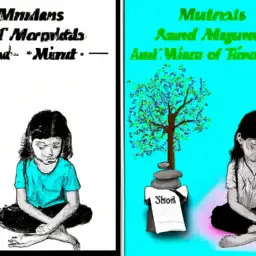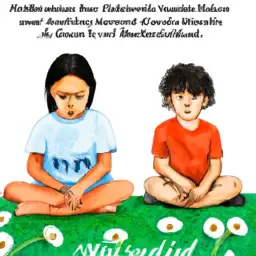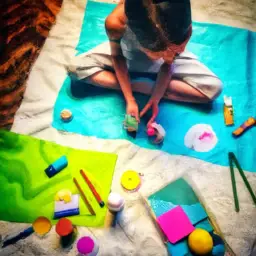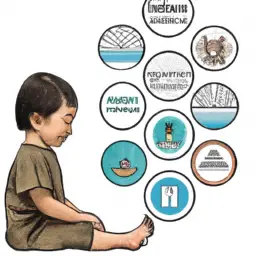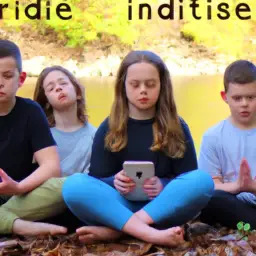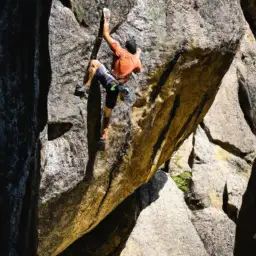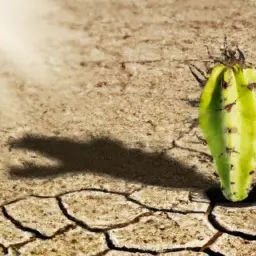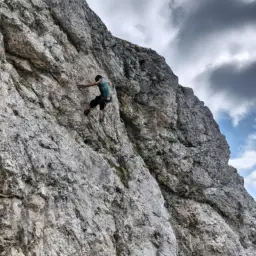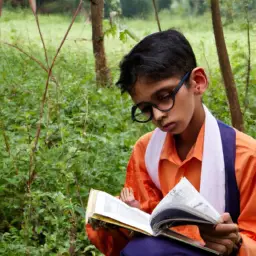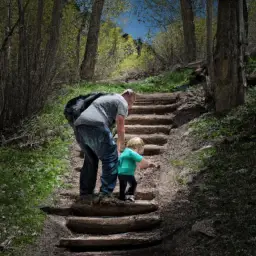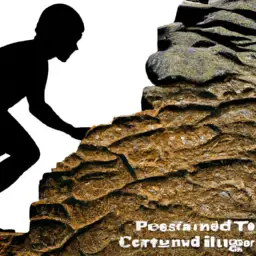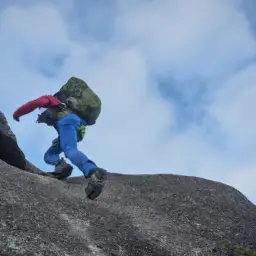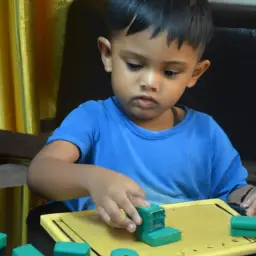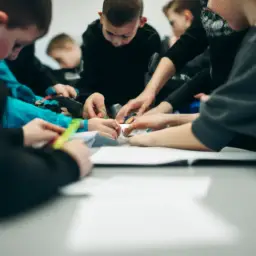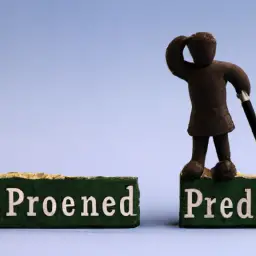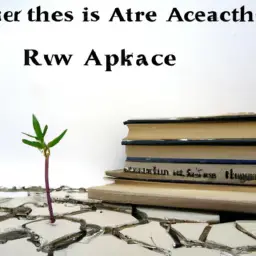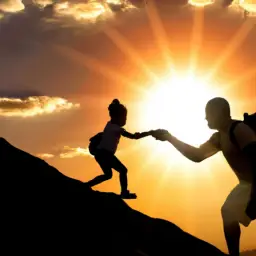Are you looking for a way to help your child develop grit and resilience? Look no further than ‘Calm for Kids,’a mindfulness approach to building these important skills in children.
This program, designed for parents and educators, offers practical techniques for teaching mindfulness to children and helping them become more present in their daily lives.
In this article, we will review ‘Calm for Kids’and explore the benefits of mindfulness for children. We will discuss the importance of being present and share practical applications for incorporating mindfulness into your child’s daily routine.
By the end of this article, you will have a better understanding of how ‘Calm for Kids’can help your child develop the grit and resilience they need to succeed in life.
Key Takeaways
- Mindfulness techniques can benefit children by improving their academic performance, mental health, and overall well-being.
- Practical applications for parents and educators include incorporating mindfulness into daily routines and collaborating with schools and teachers to create a more mindful and supportive learning environment.
- Mindful parenting involves being present with your child and actively listening to them, and techniques for teaching mindfulness to children include mindful breathing, gratitude journaling, sensory walks, and body scans.
- Mindfulness can help children develop emotional intelligence, self-awareness, and focus, and can help them navigate life’s challenges with greater ease and confidence.
Overview of ‘Calm for Kids’ and its Purpose
Ready to learn about "Calm for Kids"? This mindfulness approach is designed to help kids develop grit and we’ll explore its purpose in this review.
The benefits of mindfulness are vast, especially for children. Studies have shown that mindfulness techniques can help improve focus, reduce stress and anxiety, and increase emotional regulation. By introducing mindfulness to children at a young age, they can develop these skills early on and carry them into adulthood.
The purpose of "Calm for Kids"is to provide children with a fun and engaging way to learn mindfulness techniques. The program includes guided meditations, breathing exercises, and visualizations that are tailored for children. By incorporating these techniques into their daily routine, children can develop the skills they need to face challenges with resilience and perseverance.
"Calm for Kids"is a valuable resource for parents and educators who want to help children develop grit and build a strong foundation for their future success.
Techniques for Teaching Mindfulness to Children
Now you can learn how to teach mindfulness to your little ones with easy techniques. Introducing mindful activities to children can help them develop emotional intelligence, self-awareness, and focus. It can also help them manage stress and anxiety, as well as improve their overall well-being. When teaching mindfulness to children, it is important to choose age-appropriate activities that are engaging and fun.
Here are some techniques you can use to teach mindfulness to children:
| Technique | Description | Emotion |
|---|---|---|
| Mindful Breathing | Encourage children to focus on their breath and notice the sensation of air moving in and out of their body. | Calm |
| Gratitude Journaling | Have children write down things they are grateful for each day, which can help them develop a positive mindset. | Joy |
| Sensory Walk | Take children on a walk and encourage them to notice their surroundings using their five senses. | Curiosity |
| Body Scan | Guide children to focus on different parts of their body and notice any physical sensations or tension. | Relaxation |
By incorporating these techniques, you can help your children develop mindfulness skills that can benefit them for years to come. Practicing mindfulness can help children build resilience, develop grit, and improve their overall mental health.
Importance of Being Present
Being present is crucial in practicing mindfulness, as it allows you to fully engage with your surroundings and cultivate a sense of awareness.
Mindful parenting involves being present with your child, actively listening to them, and giving them your undivided attention. This can be difficult in our fast-paced world, but it’s important to carve out time to be present with your child and connect with them on a deeper level.
Mindfulness exercises can also help you practice being present. Take a few minutes each day to focus on your breath and notice the sensations in your body.
When you’re doing an activity, such as washing dishes or going for a walk, try to fully engage with the task at hand and pay attention to your surroundings. By practicing being present, you can cultivate a sense of calm and increase your ability to handle difficult situations with resilience and grit.
Benefits of Mindfulness for Children
Practicing mindfulness can help children improve their focus and attention, leading to better academic performance and a deeper understanding of their surroundings. It also has numerous benefits for their mental health and emotional regulation. Mindfulness allows children to become more aware of their thoughts and emotions, and to develop the skills to manage them effectively.
Research has shown that mindfulness can reduce stress and anxiety in children, and improve their overall well-being. It can also help them develop a greater sense of empathy and compassion towards themselves and others. By practicing mindfulness, children learn to be present in the moment and to accept their thoughts and feelings without judgment. This can lead to greater self-awareness and a stronger sense of resilience and grit, which can help them navigate life’s challenges with greater ease and confidence.
| Benefits of Mindfulness for Children | ||
|---|---|---|
| 1. Improved focus and attention | 2. Reduced stress and anxiety | 3. Greater self-awareness |
| 4. Improved emotional regulation | 5. Increased empathy and compassion |
Practical Applications for Parents and Educators
If you want to incorporate mindfulness into your child’s daily routine, there are a few practical applications you can try.
First, start by incorporating mindfulness activities into daily routines such as mealtimes or bedtime.
Second, collaborate with your child’s school and teachers to see how mindfulness practices can be incorporated into the classroom.
And finally, model mindfulness yourself by practicing it in your own daily life.
Make sure to use contractions throughout the paragraph.
Incorporating Mindfulness into Daily Routines
You can easily incorporate mindfulness into your daily routines with simple techniques provided in ‘Calm for Kids’: a mindfulness approach to developing grit, allowing you to nurture your child’s resilience and emotional intelligence.
One way to do this is by introducing mindfulness exercises during meal times or bedtime routines. Encourage your child to focus on their breathing or to pay attention to the taste and texture of their food. This helps them become more aware of their senses and brings them into the present moment.
Another technique is to create calm spaces in your home. This can be a designated corner with a comfortable cushion or a small table with calming items such as a plant or stress ball. Encourage your child to use this space when they need a break or when they’re feeling overwhelmed. This helps them learn to self-regulate their emotions and gives them a safe space to process their thoughts and feelings.
By incorporating these simple mindfulness techniques into your daily routines, you can help your child develop important life skills that will serve them well into adulthood.
Collaborating with Schools and Teachers
Collaborating with your child’s school and teachers can be a great way to incorporate mindfulness into their education and help them develop important social and emotional skills. Here are some ways to get started:
-
Talk to your child’s teacher about the benefits of mindfulness and how it can be integrated into the classroom.
-
Encourage the school to provide teacher training on mindfulness techniques and how to incorporate them into lesson plans.
-
Advocate for school-wide implementation of mindfulness practices, such as brief breathing exercises or mindfulness breaks during the day.
-
Share resources with teachers, such as books or online resources, to help them incorporate mindfulness into their teaching practices.
-
Consider organizing a mindfulness workshop or event for parents, teachers, and students to learn and practice together.
By collaborating with your child’s school and teachers, you can help create a more mindful and supportive learning environment for all students. Together, you can help your child develop important skills such as focus, resilience, and empathy.
Frequently Asked Questions
What is the recommended age range for implementing the ‘Calm for Kids’ mindfulness approach?
The recommended age range for implementing the ‘Calm for Kids’ mindfulness approach is generally between 4 and 12 years old. This approach has many benefits for children with ADHD, as it helps them to develop focus and self-regulation skills, reduce stress and anxiety, and improve their overall wellbeing.
By practicing mindfulness techniques such as breathing exercises, visualization, and body awareness, children can learn to manage their emotions and behavior in a more positive way. Additionally, incorporating mindfulness into their daily routine can help them to build resilience and grit, which can be beneficial throughout their lives.
Are there any potential negative effects of practicing mindfulness for children?
When it comes to mindfulness for children, there is some potential controversy and potential drawbacks to consider. Some critics argue that mindfulness can be overly focused on the individual, leading to a lack of awareness of social and environmental issues.
Additionally, some children may not be ready for the practice or may find it difficult to focus. However, with proper guidance and age-appropriate techniques, mindfulness can be a helpful tool for children to manage stress and build resilience.
It’s important to weigh the potential benefits and risks before implementing a mindfulness practice for children.
How does ‘Calm for Kids’ differ from other mindfulness programs for children?
If you’re looking for a mindfulness program for your child, you may be wondering how ‘Calm for Kids’ differs from other options out there.
One major benefit of this program is its focus on developing grit. In addition to teaching basic mindfulness techniques like breathing exercises and body scans, ‘Calm for Kids’ emphasizes the importance of perseverance and resilience.
The program encourages children to face challenges with a positive attitude and to view setbacks as opportunities for growth. Overall, ‘Calm for Kids’ offers a unique blend of mindfulness and character development, making it an excellent choice for parents looking to help their children build important life skills.
Can children with attention-deficit/hyperactivity disorder (ADHD) benefit from practicing mindfulness with ‘Calm for Kids’?
If your child has ADHD, practicing mindfulness with ‘Calm for Kids’ can be highly beneficial. Mindfulness has been shown to improve attention and focus, which are common challenges for children with ADHD. Additionally, mindfulness practices can help children regulate their emotions and reduce impulsivity.
By incorporating mindfulness into your child’s routine, they can develop important skills to manage their ADHD symptoms and improve overall wellbeing. ‘Calm for Kids’ specifically offers guided meditations and breathing exercises designed for children, making it an accessible tool for introducing mindfulness to your child’s daily life.
Is there any research or data supporting the effectiveness of ‘Calm for Kids’ in developing grit and resilience in children?
Research findings have shown that mindfulness practices, such as those taught in ‘Calm for Kids’, can be effective in developing grit and resilience in children.
By teaching children to become more aware of their thoughts and emotions, mindfulness can help them develop a greater sense of control over their lives.
Additionally, mindfulness practices can improve cognitive flexibility, which can help children adapt to challenging situations and develop a growth mindset.
These practical applications of mindfulness can help children develop the skills they need to succeed in school and in life.
Conclusion
Now that you’ve learned about ‘Calm for Kids’ and its focus on mindfulness as a tool for developing grit in children, you may be wondering how to incorporate these techniques into your own parenting or teaching practices. The good news is that there are many practical applications for both parents and educators!
One simple way to begin is by setting aside a few minutes each day for a mindfulness practice such as deep breathing or body scans. You can also encourage children to be present in the moment by engaging in activities such as nature walks or art projects that require focus and attention.
By teaching children the importance of mindfulness and helping them develop a sense of calm and resilience, you’re giving them valuable tools for navigating life’s challenges with confidence and grace.






